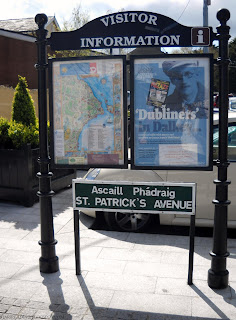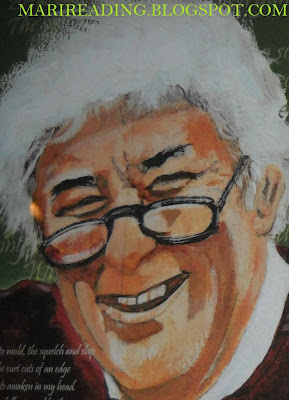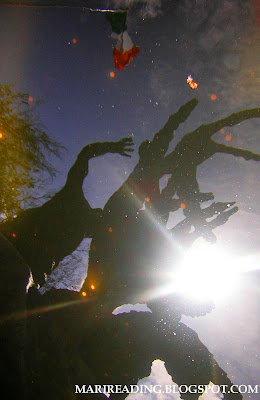Commemorating that it was only a year ago that I read The Bell Jar by Sylvia Plath, today I really feel like having her in my blog. Apart from that, I also really wanted to talk about her here just to remind myself why and how I am the way I am, to celebrate myself, to give me strength and courage. It is really a profound shame that still nowadays a woman has to sort of say she is sorry for being mistress of her own mind and body. Needless to say, I never give a damn about what people think about me, of course. But I admit that sometimes, that lately, that as in this case, I can have wee moments of weakening of the spirit, mostly because these comments come from people really close to me. I am really very open to criticism and to self-criticism too, so I cannot help analysing all the comments I get, no matter how stupid. But then I turn to Plath and I know that everything is alright. With me. I am free. That is why they feel threatened. And are so jealous.
For me, Sylvia Plath is not just the outstanding chronicler of her times and specific geography but of my own here and now as well. The Bell Jar still serves as a painfully accurate depiction of society. Things have not changed that much really. But because of that, Plath's magic has not faded, but rather, it shines even brighter in the 21st century. And the process is unstoppable. There is more and more Plath to come in the following decades (because the world will not change much; because there will be more unpublished/secret documents of/about her released...)
.jpg)
Before reading the novel, I was not very sure of what I was going to find there. I knew it was, up to a certain extent, autobiographical, and since we all know a lot about Plath's tragic death, I was afraid it was going to be a painful process, in the sense of being witness to the decline of a wonderful woman like her. My surprise was an overwhelming sense of personal fulfilment. Bliss. Hope. Self-love. Please, never give away your individuality in exchange for society. Be open to dialogue always but never give yourself away! The fact that her profession was that of a poetess also clouded my novelistic expectations as regards the text, fearing it would be just a narration of her life, dates, facts, etc. Nonetheless, just from the very first lines I knew it was going to be one of the novels of my life: the content challenges traditional values; the form works as content too; and if you read the novel, you will read me – the novel read me.

The novel opens with Esther in New York, where she is supposed to find her own identity, to outline her future. However, this quest turns into a failure because she develops a split personality to cope with the defeat. Sylvia Plath's The Bell Jar is a critique on the role of woman in modern society. The author exposes a view of society which is split in two, just as Esther, the protagonist, is. Therefore, society is a battlefield in which male and female languages are at war and the official and eternal winner is male, since the established system is patriarchy, engendered and supported by religion; her disappointment with New York comes from that realisation. Nevertheless, Plath develops progressively a solution to male domination which is born as a response to its violence and involves a dynamic quest for a form that is unique to female. Although it is autonomous, it is rooted in male – just as the universe's principles (Budick). Despite the fact that female principles do not rule our public life, precisely because of that, female principles should reign over our private life.
Plath's universe is sexist. Before going to New York, she is already entrapped by male language: her science teacher, her mother's insistence on her learning shorthand, Buddy Willard's double moral... Nevertheless, her claustrophobic state is heightened after her summer in New York, where she was supposed to find herself, her identity. The quest there fails too, even her most potential female model – Jay Cee – turns out to be just an agent of patriarchy, submitting herself to male language. Although she has not forged her identity yet, she ends her summer with one clear conviction: she will never serve men. And that is precisely what they taught her there: domesticity. This male domination over female is executed through violence. More precisely, Plath symbolises it with electricity. Right from the very beginning, the novel starts by mentioning the electrocution of the Rosenbergs. Patriarchy punishes. It creates a system of fear through electricity. The Rosenbergs' mention serves as foreshadowing of Esther's future decline and shock therapy as punishment for refusing submission to men, for questioning the social and moral code.

Esther's retreat from the male language and world leads her to suicide. Plath symbolizes this retreat as going back to the womb. Only after this she could be re-born again. Plath's implication is that women ought not to just reject the male forms – in her case, the rejections include Dr Manzi, Buddy, Dr Gordon – but also to conquer them and find their own. If one only rejects them, one cannot find one's place in the world, the personal, own identity. To find hers, Esther is helped by Dr Nolan, who makes her realise that she has to find her own way and, therefore, reject any female model imposed by either male or female agents of patriarchy. Electrocution is the punishment to the Rosenbergs for their dissidence on official politics; Esther is treated with shock therapy by Dr Gordon, "a “normal” American male" (Perloff), after her suicide attempt. That attempt was the consequence of her total rejection of a world dominated by male language. Male silences dissidence with violence, by force, by imposing meaning: there is only room for one, the official. In this world dominated by male, female is only allowed to be submissive, since any attempt at self-expression or active sexuality is punished. Therefore, male violence towards non-passive females is symbolized by electricity, an energy which is sterile because it forbids the woman's control over her sexuality. As opposed to that, we find the umbilical cord.
 |
| A Room of One's Own |
If the cause of Esther's alienation, Plath diagnoses, is male language – male violence and domination – the solution she gives is, according to literary critic E. Miller Budick, a "magical thread". As opposed to electricity, which tried to control the imagination and actions of women, this thread is the energy, the umbilical cord that leads Esther out of the womb: it is her recovery from her suicide attempt. That cord is a symbol of female experience, which is fluid and constantly re-inventing. She will be reborn. And what is this thread all about? This thread is a female form, a female language, the reflection of an unique female experience. While men make use of violence to impale meaning, women offer fluidity and free-floating imagining and language, because they have control over their sexuality and freedom. The content is reflected in the formal aspects of Plath's novel: she follows a structure of flashbacks, digressions and movement to unveil her plot. Esther's biological feminism is Plath's literary feminism (Budick). Explicit reference to this thread is made when Esther remembers her skiing session with Buddy Willard. He dominates her every movement giving commands while she is struggling with the rope. The outcome is her broken leg. Once again, sex and violence go hand in hand. At this point, Esther has not yet realised the importance of finding her own form, her response to male. Another mention to that threat is related to Dr Nolan. Unlike Dr Gordon's (male) shock therapy, Nolan's (female) electricity is not violent, it is described as a thread. Once Esther is aware of the procreative power of the thread, she lifts the bell jar and re-enters the (male) world. Memory plays an important role in this process. Plath implies that memory should not be erased, no matter how painful or humiliating, but rather, it should be safely kept so as to make pain present. With our mostly painful memories present, we preserve and enhance the yearning for rebirth. The necessity of it.
 |
| Nice idea! :) |
Recent critics such as Coté have stressed the importance of reshaping Plath's legacy, of going back to the archive to (re)read Plath as a subject-in-history. Traditional criticism had wrongly associated Plath's poetry genre – confessional – with authoritarian, private meanings, that very much obscured her work, reduced it. However, nowadays recent studies like Helle's “Lessons from the Archive: Sylvia Plath and the Politics of Memory” (2005) or Hammer's “Plath's Lives” (2001) are attempts to portray the author's dissidence within Cold War America. The over-presence of sickness and illness in The Bell Jar seems to be working as a critique on a mad, corrupted world where no one is exempt from illness.
At the end of the novel, Esther's material conditions are the same, yet her perspective has changed: she is Master of her world, she has not only conquered the world, but also re-established her relationship with men. Although Esther is now mentally cured, the world is still insane. For instance, Irwin's reaction to Esther's hemorrhage is un-human, but Esther responds to it by remembering his responsibility. Irwin gives Esther a war wound in the battle of sexes emphasizing male violence once again. The distinction of sane/mad turns out to be an illusion (e.g: when she goes volunteering at a hospital). Another feature of Plath's exquisite mind is the fact that her “feminist” response is not traditional but rather quite challenging. She defines a female form that is sexually-aggressive and rather than victimize women, she gives them the power to struggle, conquer and (pro)create their own meanings. That is very relevant in the context of Cold War America.
 |
| So familiar... |
To conclude, The Bell Jar's universe is violent because it is discriminatory towards the female sex. Plath explores how male opressess female to control women's sexuality and to serve the needs of men. To put this idea across, Plath makes use of electricity and the umbilical cord to oppose death and sterility to vital forces, life and birth. The retreat from male language can only lead to suicide, because patriarchy is a synonym of society in Western societies; but with a form uniquely female, featuring both inner creativity and a link to the world outside, women can escape domesticity and start her own private rebellion. One private rebellion may not have the power to change the world. But if we join all our private rebellions together...!
 |
| ... and still am! |
As a final comment, just let me add that my blog is just as free-floating as the female experience and form Plath puts forward :) Those of you who have read the novel know that James Joyce plays a very important role in it. Unfortunately, he implies negative connotations, because it marks the start of a painful process, symbolises male (... but that's an interesting topic for a post of its own!). But just as Joyce, Plath ultimately finds her own voice and place in the world. So, as I was saying, next week is Bloomsday! I won't be in Dublin that day but I may write a few lines for our Joyce!
THANKS FOR READING ♥
-----------------------------------------------------------------------------------------------------
BIBLIOGRAPHY
-----------------------------------------------------------------------------------------------------





























.jpg)
















